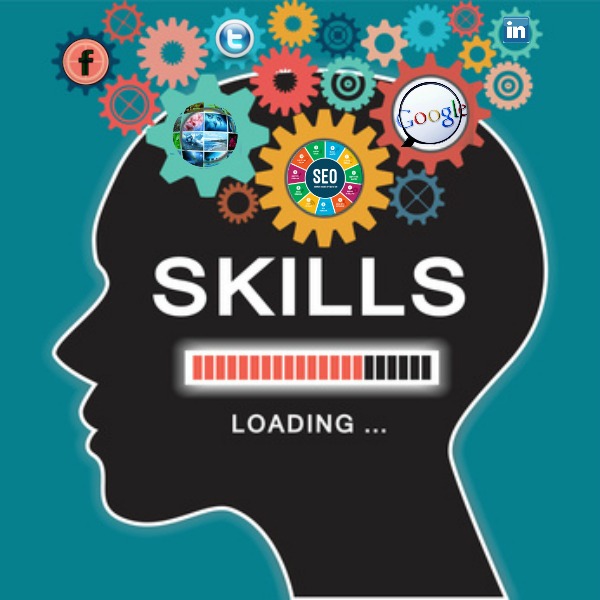First we had the digital divide – the gap between the Internet “haves and “have-nots”. While the digital divide is not fully handled, 40% of people worldwide are online now. That’s 3.2 billion of us. The conversation has shifted to: “do we know what we’re doing with technology?”
The lack of digital skills and how it affects productivity in business has been in the news a lot lately. The BBC reports today that more than 12 million people, and one million small businesses, in the UK fall into the digital skills gap. It’s defined as the ability to manage your work and life tasks using technology. The BBC article lists these five basic skills:
- Manage information
- Communicate
- Make payments
- Solve problems
- Create stuff
The US is also experiencing a lack of digital skills and it’s having a profound effect on business. Productivity growth in the US has slowed to levels not seen since before the digital revolution. More than 200 million Americans are part of the digital workforce, yet only 1 in 10 says they’re proficient in the digital tools they use everyday at work. (Source: Grovo whitepaper) The Grovo paper lists eight digital skills needed in business today.
- Working with documents
- Project collaboration
- Attention management
- Communication
- Digital etiquette
- Search & research
- Platform flexibility
- Security & privacy
Digital PR Skills
Many of these skills are particularly relevant to the practice of PR.
Communication: PR is a communication function. There are a host of digital skills we need just to manage our jobs as PR pros. Yes, everyone needs to be able to use email, messenger, texting and other methods of communicating, but our jobs go so much further. We need to know:
- how to write for the web
- how to communicate visually
- what platform our audience is on
- the “native language” of each platform”
Search & research: Search is now viewed as a media source. Not only that – it’s the most used and most trusted media source (2015 Global Trust Barometer.) That makes the ability to use search and do research online a key PR skill. Here too, there are several skills you need to get under your belt:
- keyword research
- how to optimize content – written and visual – for search visiblity
- the difference between news search and web search
- how search algorithms work
- stay current on search algorithm changes
- what kind of content Google likes
- how to listen to online conversations
- how to find insights that drive action
Project Collaboration: We’re creating material like articles, press releases, images, videos and infographics (or you should be!) We have to work with others – designers, writers, seniors & clients. So using digital tools that allow us to quickly and easily get out work done and approved is central to our work today.
- how to upload a file to a sharing platform
- how to use collaborative project management tools – Dropbox, Basecamp etc.
Working with documents: Digital documents are the backbone of the modern workplace. We use all sorts of programs and we have to be able to use them well. We have to know how to create our content in many formats, file it, find it again, share it or send it to others.
- Word
- Excel
- Powerpoint
- Keynote
- Images
- Video
Digital Etiquette: Defined as the ‘dos and don’ts’ of online communication, this is another digital skill that impacts PR directly. Since we communicate online and in social media it’s vital to understand the etiquette for digital communication overall, as well as the rules of engagement on each platform.
- how to listen
- when to engage
- social skills
- good manners
- understand the community active in each platform or network
Create Stuff: This is right in the center of our wheelhouse. It’s what we do. Being able to create good content using digital tools is an essential PR skill today. And it goes much further than the traditional PR skills of writing and research:
- Photography
- Images
- Video
- Editing
- Writing
- Coding basics
- Using blogging software
- Apps
- And the list goes on…
Manage information: The ability to gather, analyze and manage information has made it possible for PR to show the results of our work. This is another new skill that has not been taught to PR students. Learning how to use analytics and report ROI will make all the difference to the perceived value of PR.
PR folk need to learn how to:
- track content distribution
- make tracking links
- use Google Analytics
- track impressions and clicks
- set goals and track conversions
- extract insights from the data
One of the problems is that the rapid pace of technological change in the workplace is leading to a skills half-life of only 2.5 years and organizations are failing to adapt their training programs quickly enough. (Source: Deloitte.)
Every year the digital skills gap drives an estimated $1.3 trillion loss in the US economy. In order to stay current, productive and competitive companies and PR agencies must make digital skills training an integral part of their strategy. It should be a non -negotiable line-item in the budget.
Get the Digital PR Tips newsletter.


